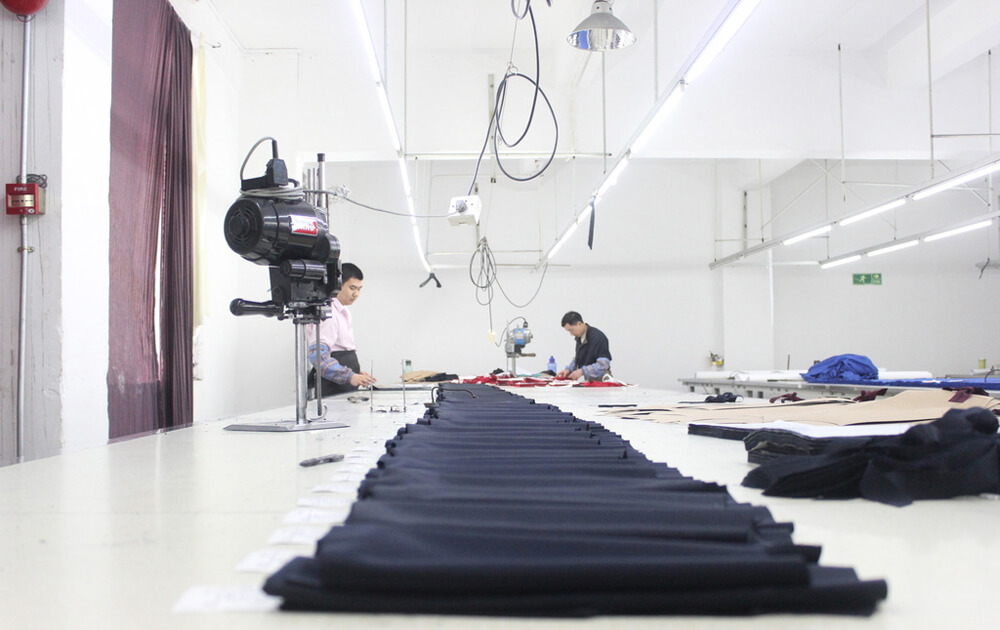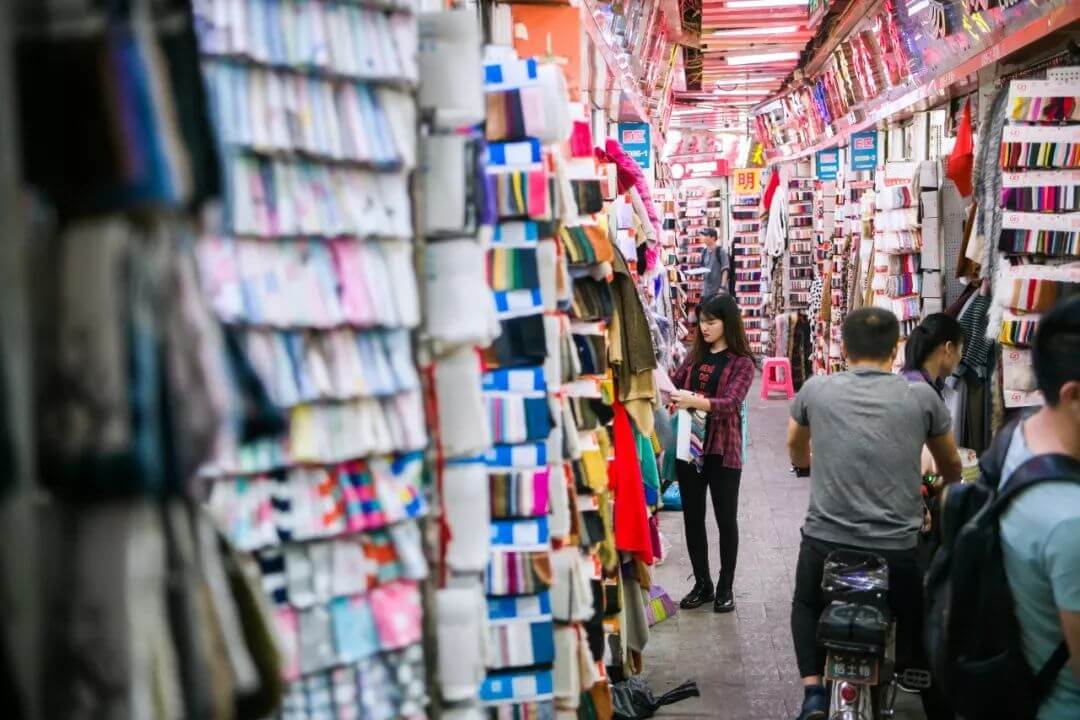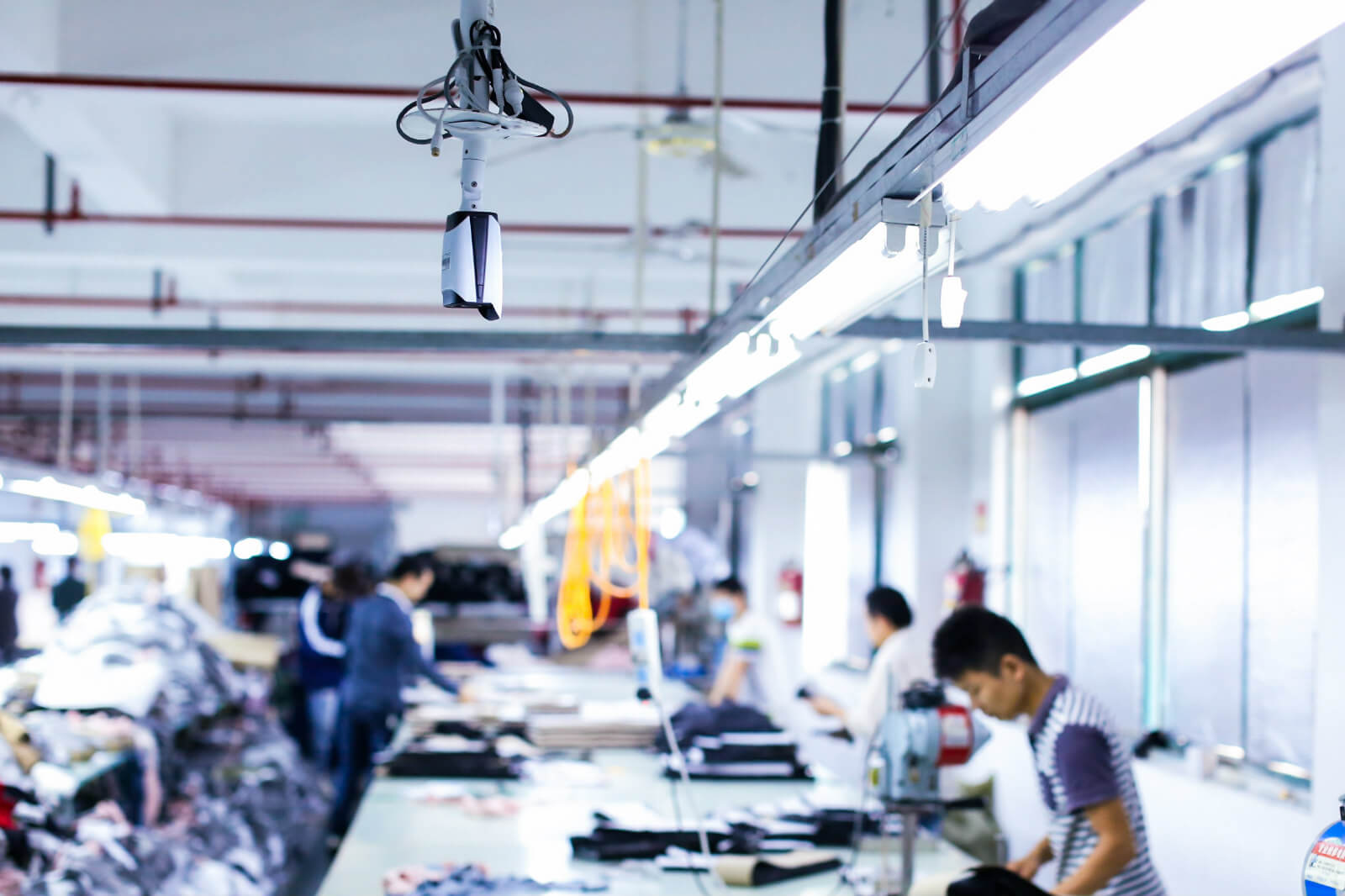As a business owner in the fashion industry, you’re likely always looking for ways to cut costs and increase efficiency. You may consider two methods of garment production: CMT (cut, make, and trim) and FPP (finished piece price).
So, which is the best method for your business? It depends on several factors, including the type of garments you produce, your production volume, and your budget.
Let’s take a closer look at CMT vs FPP to help you decide which is best for your business.
What is CMT?
Cut, Make, and Trim (CMT) manufacturing is a service offered by factories that cuts, makes, and trims your designs into fully finished items. Before production, the factory will need specifications, tech packs, fabrics, patterns, and stitching instructions from you.
Following this information, there are three critical phases in the process of developing your product:
Stage one: Cut
The first step in the production of CMT is to cut fabric. Depending on the pattern and grading supplied, the cloth will be missed. Manufacturers frequently utilize specialized equipment and technology to produce a precise cut to guarantee the most satisfactory quality outcomes.
Note:
Factories fulfill your requirements, so this might be costly if there are any problems. To minimize these concerns, including a comprehensive technology package. If you want some assistance in generating one, look at our article – How to make a tech pack?

Stage two: Make
Manufacturers will go on to the next step, manufacturing the apparel, once they’ve cut the cloth. This involves sewing the materials together to form the finished item, which is done frequently by machinery for a quick and precise finish.
Stage three: Trim
The final product is completed once the seams have been sewn together. The garment’s quality check is carried out, and a complete examination for quality control before delivery to the customer.
The benefits of CMT manufacturing
Using CMC Technology to develop garments sold in stores can be a great alternative for designers who want to increase their production levels. You can maintain control of fabric choice and other features such as swing tags, labels, and any additional trims by utilizing a CMT process. Using this manufacturing approach may also help you achieve faster lead.
Because of the nature and complexity of CMT manufacturing, it’s critical to comprehend the production process. This will guarantee that your expectations are met; however, FPP (Full Package Production) may be a good option if you’re just starting out in the fashion business.
What is FPP production?
As the name implies, this technique entails a comprehensive package from the manufacturer. They develop patterns, acquire fabrics and trims, produce samples, and lead you through every step of garment production from beginning to end.
FPP manufacturers also perform a variety of additional tasks in addition to managing the CMT process mentioned above, including:
Design stage
You should have an idea of the apparel and designs you wish to develop when you start a fashion business. To go from these concepts to fundamental patterns, digitized drawings must be finished to create test areas and cuts. An FPP factory can assist by turning basic hand-sketched sketches into full specifications.
Fabric producers may also be able to provide input and direction during the design phases based on trends and movements in the industry. They will understand what works and what doesn’t since they collaborate with textile vendors and fashion experts daily. Of course, you don’t have to give up your ideas and plans entirely, but having this professional expertise can assist you in making better decisions.
Technical specifications
When you have no prior expertise in garment manufacturing, technical data, measurements, and terminology might appear intimidating. It is not feasible for smaller outfits to thoroughly understand this procedure while attempting to run everything else in their business.
They may create all of your requirements for you and even check them over. The majority of garment manufacturers will have established gradings and patterns for each type of clothing, allowing the process to be quick and straightforward. They will, however, work with you on the more minute details such as label design, print pattern, and hardware placement.
Fabric sourcing
You’ll have access to many textile producers and suppliers in FPP packages. Your manufacturing partner will be able to advise you on the most sumptuous fabrics and order quantities for your budget. You should also get a good deal because of their connection with external fabric sources.
However, there may be certain compromises in fabric choice. Because of minimum orders, some materials may not be accessible, and others might not go well with a specific design. To avoid any material or design concerns in the manufacturing process, your FPP partner can help you choose the finest cloth.

Expert assistance and valuable tools
You will have access to tools and expert insight that may help you grow your firm as part of the FPP process. Your production partner can often guide you through the procedure, which you hadn’t considered previously.
The formalities may be perplexing to newcomers, and the sector’s rules might be complex. They will already have ethical and legal standards to ensure that you comply with legislation if they use a reputable FPP manufacturer.
The benefits of FPP manufacturing
Economies of scale
Another benefit of FPP is the opportunity to take advantage of the manufacturer’s scale in terms of fabric and trim procurement. Prices for commodity items like denim or basic t-shirts can frequently exceed individual brand sourcing estimates. However, this does imply you are now directly competing in the market with them over their same cloth.
Brand focus
Creating a garment using FPP entails much more costs than the traditional method. However, for designers with little to no prior manufacturing expertise, you can entirely delegate operational duty and focus solely on the brand.
Disadvantages of FPP production
FPP may imply a loss of control when it comes to selecting trimmings, labels, and swing tags. Depending on your demands, you may also be restricted in fabric choices or availability. It’s worth noting that manufacturers will do everything they can to satisfy brand standards while still providing high-quality alternatives that meet your requirements.
Which production method is best for you?
Choosing between CMT and FPP may not be so simple; there are some variables to consider before deciding. They each have their own set of advantages and disadvantages.
Before approaching a factory, it’s critical to study and comprehend your own production requirements. Personally, I think that engaging in a Full Production deal has advantages over the CMT approach since it is more accountable. Still, we also understand that some brands prefer CMT methods.
As for any assistance you may need, we at Lezhou will be there to assist you. To better understand your production requirements and the sort of production strategy that would work best for you, schedule a consultation.

Finding a CMT or FPP manufacturer
There are several routes for selecting the type of manufacturer you need to collaborate with.
- For small businesses and emerging brands,
I would recommend working with a CMT factory. Working with these smaller clothing manufacturers is that they’re more versatile and can accommodate your requests easier.
Additionally, you may have the opportunity to be involved in the design process, which can help you learn about how garments are put together and manufactured.
- For brands that are more established, or for those who want to outsource all aspects of their production,
I would recommend working with an FPP factory. The advantage of these full-package manufacturers is that they can handle everything from fabric sourcing to final garment construction.
This option is ideal for businesses who want a turn-key solution and don’t have the time or resources to manage every aspect of their production.
Wrapping up
No matter which route you decide to take, it’s essential to do your research and choose a reputable and experienced manufacturer who can help you bring your vision to life.
At Lezhou, we have over 18 years of experience helping brands with all aspects of their production, from design and development to sourcing and manufacturing. We’re here to help you with every step, so feel free to contact us if you have any questions or need assistance finding the proper clothing manufacturer for your business.
